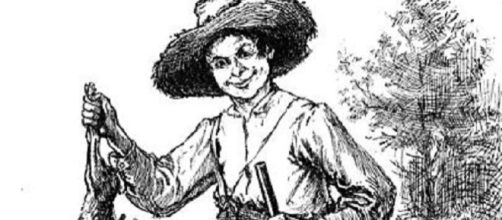At one time “The Adventures of Huckleberry Finn” was considered a classic of American literature, one of the most well-known stories written by Mark Twain. The book was regularly taught in American public schools. However, in recent decades, the story about a boy named Huck and his runaway slave friend Jim who float up the Mississippi River on a raft during the 1930s, has become problematic at best. The reason is the use of a word that was common vernacular at the time Twain wrote the book that has become so obscene that it is only referred to as the “N word.” Therein resides the controversy in the latest screen adaptation of “Huckleberry Finn.”
The word that dares not speak its name
The UK Daily Mail is reporting that the most recent screen adaptation of “The Adventures of Huckleberry Finn” is causing lots of controversy through its inclusion of the “N word” just as Mark Twain included it in his book.
Jonathan Feldman, the screenwriter of the latest adaptation, has been obliged to defend the word’s inclusion as being faithful to the book and the vernacular spoken at the time the story takes place. Others argue that the term has become so problematic in modern culture that it tends to distract from the plot and the themes of the story.
The irony is that ‘Huckleberry Finn’ is a condemnation of racism and slavery
One of the reasons why “Huckleberry Finn” is considered a classic, aside from the rich characters and the comic adventures, is that it serves as a satire against racism and slavery that were prevalent in the Missouri of the time the story takes place. Jim, the escaped slave, even though he sometimes show stereotypical behavior, comes off as a far more sensitive and, indeed, intelligent man than many of the white characters in the book.
Huck has to struggle with the idea of helping a slave to escape bondage, an act that was not only a crime in the society in which he lived but a mortal sin, condemned from the pulpit. Huck eventually decides that helping Jim get his freedom is the right thing to do, even if it means that his soul is doomed to eternal perdition.
Even so, people still struggle with the use of the “n word,” a term used as an instrument of degradation and humiliation. Even the late Richard Pryor, who used the word frequently in his stand up comedy, eventually publically rejected it in the early 1980s. Modern actors who are obliged to use the word in period films often pronounced themselves stressed by the obligation. The controversy is intractable and will remain so until society decides that words alone should be stripped of their power to cause harm.


